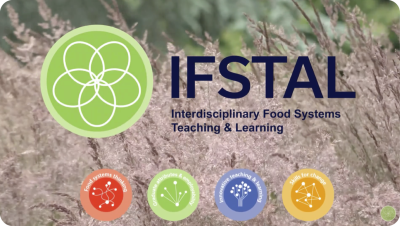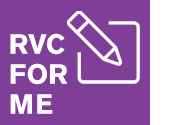Interdisciplinary Food Systems Teaching and Learning (IFSTAL)

From one in ten people going hungry every day, to obesity and undernutrition, biodiversity loss and environmental degradation, human and animal disease and compromised welfare, the failings and challenges of the current food system/s are numerous and complex and require a different approach to tackle them. IFSTAL’s aim is to train the next generation professionals and equip them with the skills to better understand these issues and come up with solutions through a cooperation with people from other sectors, disciplines and backgrounds.
IFSTAL (Interdisciplinary Food Systems Teaching and Learning) is an annual programme run as a partnership between the RVC and six other prominent higher education institutions (LSHTM, SOAS and Universities of Oxford, London City St George’s, Reading and Warwick). The partners have different backgrounds and expertise but share an interest in the wider food system and the challenges this faces. IFSTAL is designed to introduce students to the concepts of food systems and systems thinking and to demonstrate the power of interdisciplinary collaboration as a way to address complex problems. It offers online modules, in-person workshops, public lectures, training provision, workplace engagement and a summer school highlighting the need for systems thinking and an interdisciplinary approach in finding solutions to complex problems and promoting the development of food systems changemakers. It is open to all RVC students and postgraduate students from the other institutions. With its expertise in livestock food systems, One Health, animal health and welfare, the RVC is a key partner in IFSTAL and a significant contributor in the exploration of food system challenges related to animals and the search for integrative solutions.
IFSTAL gives the participants the opportunity to learn and practise skills that are extremely valuable and in demand in their professional lives, such as systems thinking, communication, teamwork and interdisciplinary cooperation. Since its inception, over 4,000 students and early career professional have engaged with the programme. Furthermore, IFSTAL is a network for students and professionals interested in food systems to connect and enhance their understanding of these systems beyond their own discipline.

For more information on how to join or anything else, contact the following people:
- Louise Whatford, IFSTAL Educational Coordinator (lwhatford@rvc.ac.uk)
- Niko Dadios, IFSTAL Educational Coordinator (ndadios@rvc.ac.uk)
- Barbara Haesler, IFSTAL Institutional Lead (bhaesler@rvc.ac.uk)
To learn more about our research work, visit Sustainable Food Systems.
Further information can also be found on the IFSTAL project site: https://www.ifstal.ac.uk/.
 Sign up to hear more from RVC
Sign up to hear more from RVC
If you’re interested in studying this course, and would like to stay informed, sign up to our RVC For Me mailing list to receive relevant information about upcoming events, students stories and life at the Royal Veterinary College.
Participation in IFSTAL, including the online materials, the workshops and the summer school, is entirely voluntary and does not include exams. Nevertheless, the learning achieved will depend on the effort and time that a participant will dedicate to the course and to make the most out of IFSTAL participants are encouraged to study all online units and take part in as many workshops and the Summer School as they can.

London, Oxford, Reading and Warwick
IFSTAL consists of four online units, four day-long workshops and a 3-day long, residential Summer School. Participation in all these course parts is encouraged but is entirely voluntary. Moreover, the programme includes are a public lecture, workplace engagement sessions, information on career and other opportunities, research collaborations and an active alumni network.
Online units
The four online units (or modules) explore the following themes:
- Exploration of food systems
- Investigation of systems thinking
- Application of food systems methods
- Intervention for food systems change
Each unit requires approx. 2 hours study time and builds on the previous ones. All units include practical tools and methods that can be used in these themes and are then applied in exercise settings in the workshops
Workshops
The workshops are full day and always take place on a Saturday and each workshop is hosted by a different partner institution (Oxford, RVC, Warwick and one of SOAS, City/St George’s or LSHTM in London).
The aim of the workshops is to consolidate the knowledge gained from the online units and to improve the teamwork and communication skills through the practical application of methods presented in the units in the form of tasks or exercises that must be completed in teams
Summer school
The summer school, where participants can practise what they have learned throughout the year, is the culmination of the IFSTAL year and a great opportunity to network with new and different people. It is a three-day long residential event, hosted by one of the partner institutions, where the participants are given the opportunity to learn and acquire communication, teamwork and project management skills and apply them in team projects on real life food system challenges provided by external parties from industry, government and charities / NGOs
IFSTAL is open to all undergraduate and postgraduate RVC students from all courses
Participation in IFSTAL is career-enhancing because it provides tangible evidence of food systems knowledge and skills that are very much in demand by employers in the food system but also other sectors, such as systems thinking, teamwork (including interdisciplinary), project work and presentation and communication. In addition, IFSTAL provides the opportunity for networking with people from many different areas and disciplines, which is particularly helpful in early career professionals
No fees (A small, nominal fee may apply for participation in the Summer School only)
